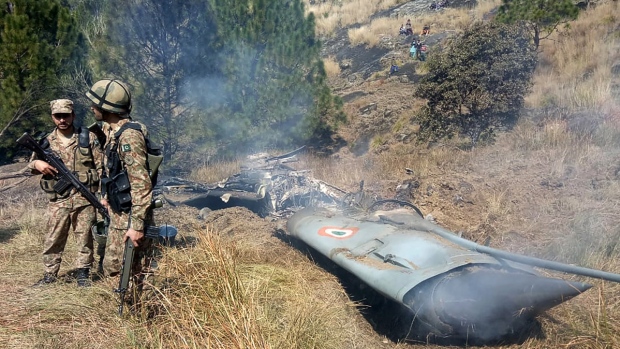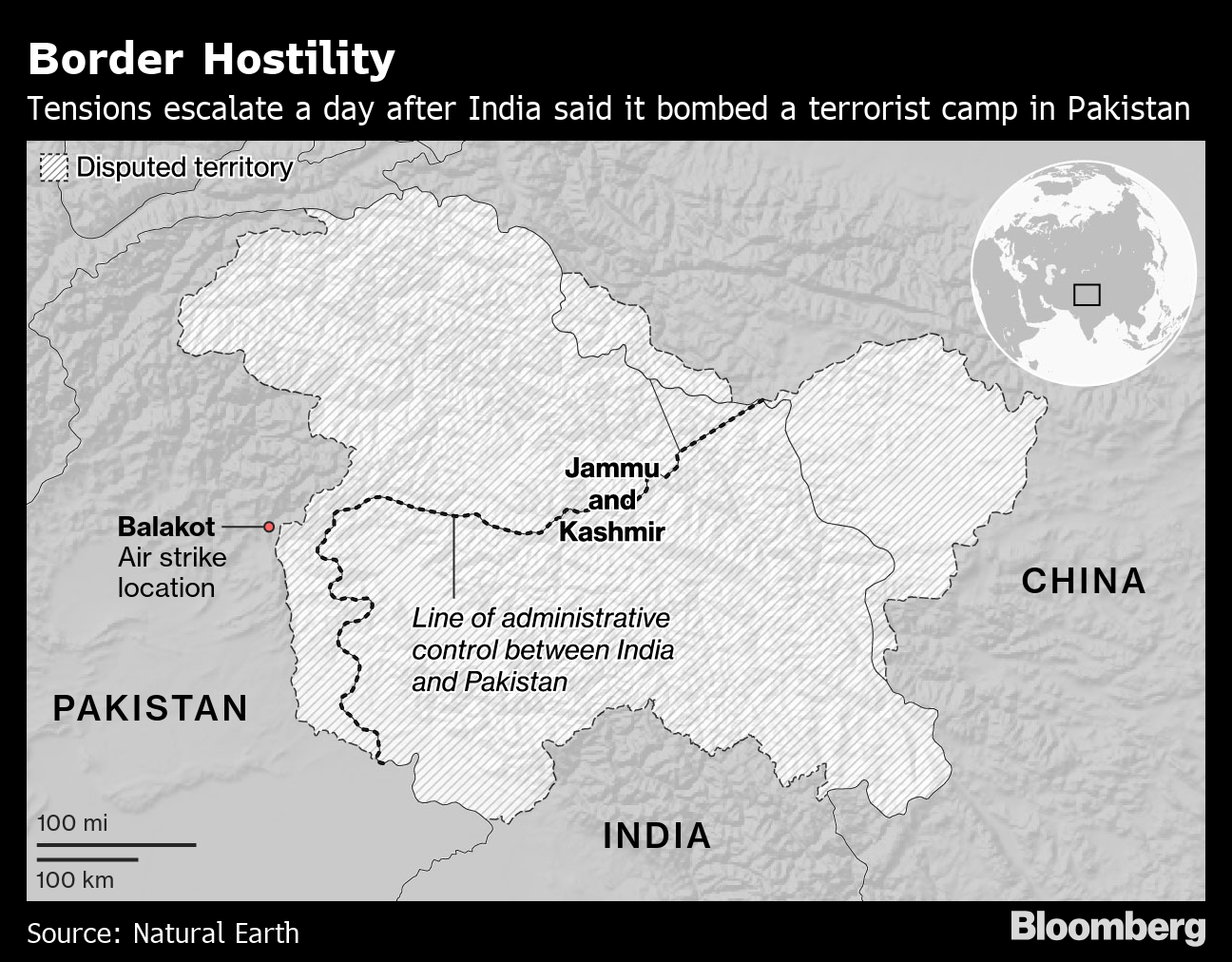Feb 27, 2019
Pakistan PM calls for dialogue with India after jets shot down
, Bloomberg News

Pakistan Prime Minister Imran Khan called for talks with India after fighter jets from both nations were shot down on Wednesday in the most serious military confrontation between them in decades.
"Better sense should prevail," Khan said in an address to the nation. "We should sit down and talk."
India’s Prime Minister Narendra Modi has yet to comment on the latest escalation. In a media briefing in New Delhi, foreign ministry spokesman Raveesh Kumar said a pilot was "missing in action." By Wednesday evening, the ministry acknowledged the pilot was in Pakistan’s custody and demanded "his immediate and safe return."
Modi is just weeks from a hard-fought election, and with nationalist fervor in India running high, he’s under significant pressure to respond. And his ruling Bharatiya Janata Party has been at pains to point out the prime minister’s "strong and decisive leadership."
"How much political leverage India gets out of this comes from Pakistan’s response, and what comes out of that response," said Sandeep Shastri, a political science professor and Pro Vice Chancellor at Jain University in Bangalore. Referring to India’s air strikes on Tuesday, he said: "I wouldn’t be surprised if this becomes a centerpiece of the BJP’s election campaign."
Pakistan was first to issue a statement today, saying it had shot down two Indian aircraft.
One fell inside Pakistan-controlled Kashmir, and the other crashed on India’s side of the Line of Control, said military spokesman Asif Ghafoor. He initially said two pilots had been arrested. By Wednesday evening, he corrected his statement via a tweet and one pilot was in custody.
Videos are circulating on social media that claim to show the arrested Indian pilot in Pakistan’s custody. In one, the pilot states his name, service number and religion.
India said Pakistan had attempted to target military installations today, in response New Delhi’s attack on Tuesday on a Jaish-e-Mohammed training camp. "The Pakistani aircraft was seen by ground forces falling from the sky on the Pakistan side. In this engagement, we have unfortunately lost one MiG 21," Kumar said. Ghafoor, in turn, denied a Pakistani jet had been lost.
"This is unprecedented territory -- we haven’t had tit-for-tat air strikes between India and Pakistan since the 1971 war," said Anit Mukherjee, a former Indian Army major and assistant professor at the S. Rajaratnam School of International Studies in Singapore, by phone. "We don’t know what will come from this. But it seems like Pakistan has given a response. And there have been casualties -- captures, deaths."

U.S. Secretary of State Mike Pompeo called the foreign ministers of both countries on Wednesday. He said "we encourage India and Pakistan to exercise restraint, and avoid escalation at any cost," and noted Pakistan’s priority was to avoid military action and take "meaningful action against terrorist groups operating on its soil."
India’s rupee reversed early gains to trade 0.3 per cent lower as of 4:45 p.m. in Mumbai, while Pakistan’s benchmark stock index ended at its lowest level since Jan. 7. Across the border, India’s S&P BSE Sensex closed 0.2 per cent lower after gaining as much as 1.1 per cent in early trading.
Diplomatic Outreach
Earlier Wednesday it appeared the bitter rivals were looking to lower the temperature with renewed diplomatic outreach.
Pakistan sought help from the United Nations to de-escalate the situation, while India -- which is facing national elections in a few weeks -- reached out to countries including U.S., U.K., China, France and Russia and urged the government in Islamabad to take action against terror groups based in the country.
China’s Foreign Minister Wang Yi said there was concern over the growing tensions, according comments posted on the ministry’s website. As friend of both nations, China hopes India and Pakistan can solve problems via talks and ensure regional peace, he said. “China is willing to play a constructive role.”
The diplomatic back-and-forth came after India’s Air Force said its jets launched airstrikes against terrorists inside Pakistan, which scrambled its own jets in response. The target was a camp run by Jaish-e-Mohammed which claimed responsibility for the Feb. 14 suicide car bombing in Kashmir which killed 40 members of India’s security forces.
The last two days of air strikes represent the worst escalation since 2001, when Pakistan and India moved ballistic missiles and troops to their border following an attack on parliament in New Delhi that was also blamed on Jaish-e-Mohammad. India and Pakistan have fought three major wars since partition and independence in 1947.
"They will not allow things to go out of control because both countries are facing tremendous pressure from global powers including China and the U.S.," said Rashid Ahmed Khan, head of politics and international relations department at University of Central Punjab, Lahore said by phone. "There will be a controlled and managed escalation."
